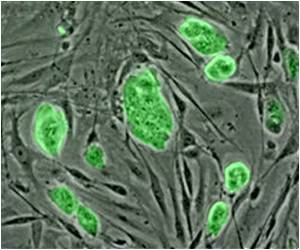According to a new genotyping research from the Centre for Addiction and Mental Health (CAMH) whether a smoking-cessation drug will enable you to quit smoking may depend on your genes.
The new genetic research into nicotine addiction, found that the enzyme known to metabolize both the smoking cessation drug bupropion and nicotine is highly genetically variable in all ethnicities and influences smoking cessation and published the same in the September issue of the journal Biological Psychiatry.
This finding is a step toward being able to tailor smoking cessation treatment to individuals based on their unique genetic make-up. “This first study identifies a very common genetic variant (present in anywhere from 25 to 50 percent of world populations) that appears to affect the outcome of smoking cessation treatment,” said Rachel Tyndale, Section Head of Pharmacogenetics at CAMH and lead researcher on the study, adding that the results would have to be replicated.Tyndale and colleagues performed genotyping on smokers for CYP2B6, a gene known to be highly variable and whose enzyme metabolizes bupropion, nicotine and serotonin. Participants were then provided with either placebo or bupropion treatment for ten weeks and followed up for 6 months.
The research project, supported by the Canadian Institutes of Health Research and the National Institute of Health, found that 45% of individuals with a specific variant of the gene benefited from bupropion treatment and maintained abstinence longer while doing poorly on placebo, with a 32.5% abstinent rate vs. 14.3%, respectively. In contrast, the 55% with a different variant of the gene (wild type variant) had good abstinences rates on placebo and gained no additional benefit from Bupropion, suggesting no benefit from treating these individuals with Bupropion. Of note, this group was able to quit smoking very well in the absence of an active drug (on placebo).
What percentage of people fall into the group that appeared to benefit" Previous studies have shown that 45%, 50% and 25% of White, African and Asian North Americans have the former specific variant form of the CYP2B6 gene.
The current study looked only at people of European ancestry, says Dr. Tyndale, but she and her colleagues have begun a similar study in African American smokers. They hypothesize that the variant form of the CYP2B6 gene will influence the effectiveness of bupropion treatment and ability to quit smoking in the same way in African Americans as in those of European descent.
For more information or to arrange interviews please contact Michael Torres, Media Relations, CAMH at (416) 595-6015.
Advertisement
Source-Eurekalert
SPH/C






